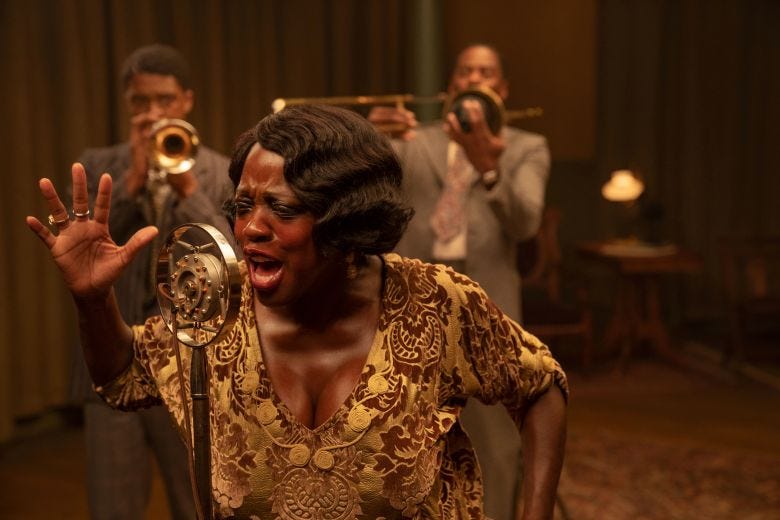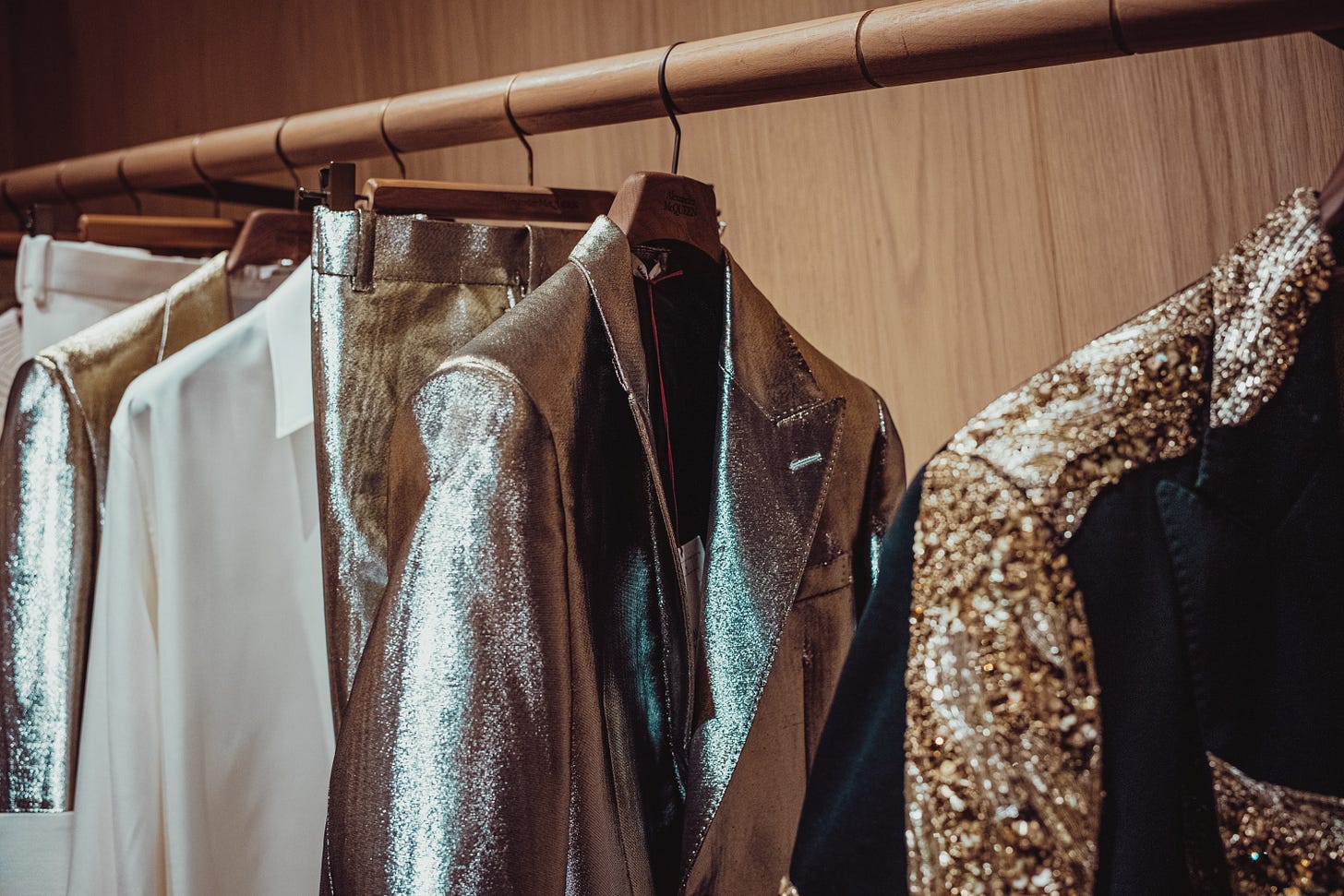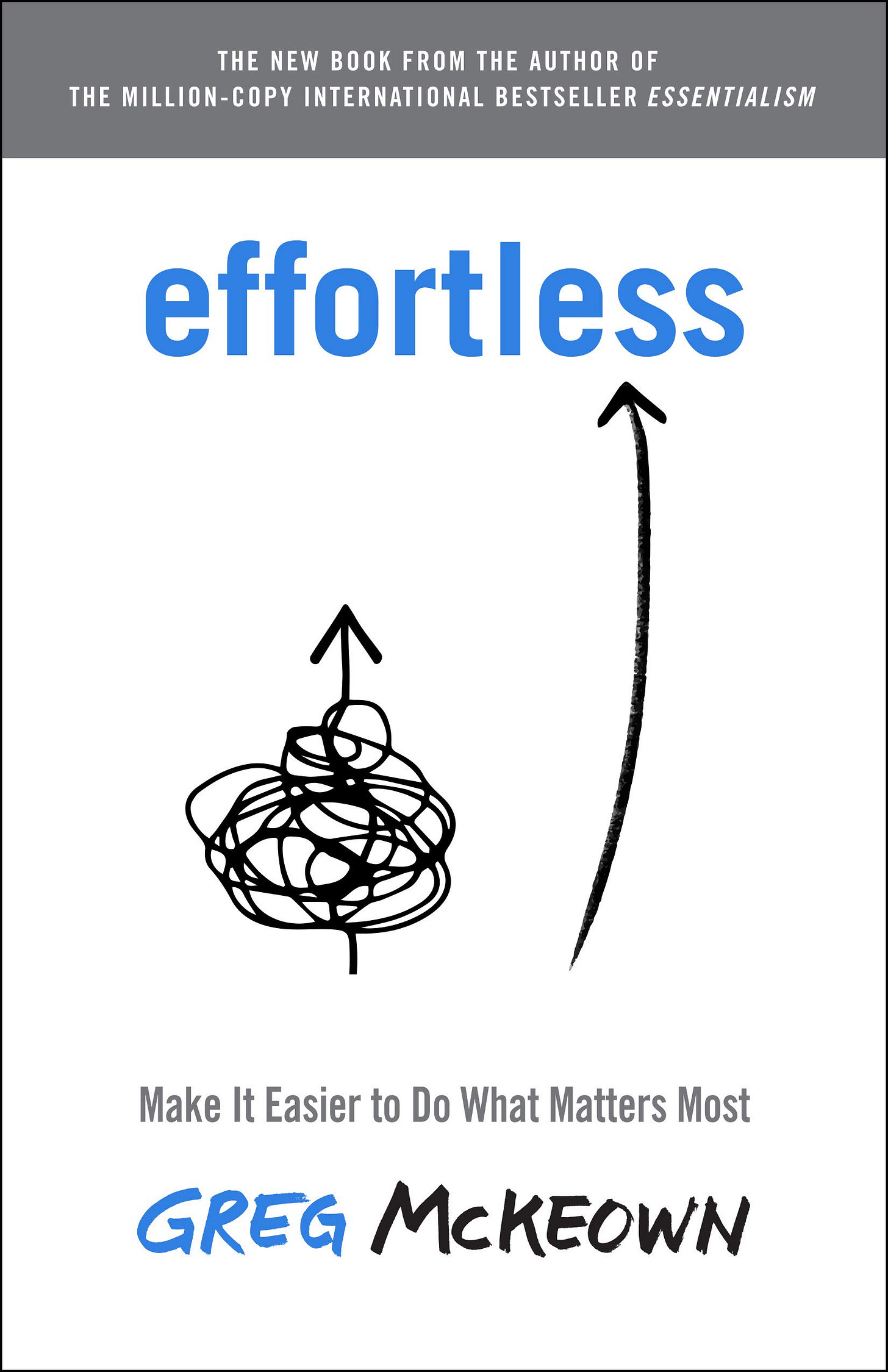I wish we stopped asking unqualified talking heads to answer questions about racism
Of course a white man living in a country founded by white men, built on the backs of enslaved Africans and sustained by cheap labor would dispute my lived experience.
During an appearance on Fox News Sunday, Lindsay Graham, the Republican senior senator from South Carolina, was asked by host Chris Wallace if he believes there is systemic racism in policing and other institutions. “No, not in my opinion. We just elected a two-term African-American president; the vice president is of African-American and Indian descent. So our systems are not racist,” he said. “America is not a racist country. Within every society, you have bad actors. The Chauvin trial was a just result.”
Graham isn’t an outlier. Most white people agree that cherry-picked examples of incremental progress indicate equality is now the rule instead of the exception. But Barack Obama and Kamala Harris ascended to the White House while avoiding racists attacks on their heritage and culture. None of that goes away because they occupy seats of power. As Ta-Nehisi Coates wrote for The Atlantic in 2014, “They’ve won by being twice as good — and enduring twice as much.” In fact, Donald Trump was a direct rejection of the Obama presidency from white people who feel that this country is becoming too brown too fast.
Of course, a white man living in a country founded by white men, built on the backs of enslaved Africans and sustained by cheap labor would dispute my lived experience. Journalists like Wallace ask conservatives like Graham questions about a subject on which they lack the interest to understand or the range to speak on with any sense of empathy, compassion or authority.
There’s a reason our culture loves to ask unqualified talking heads questions about racism. It’s easier to debate whether racism exists or not than acknowledge that it’s the force behind who wins and loses in a country that claims to be a meritocracy. Systemic racism requires a level of exceptionalism from marginalized communities that is optional for white people. We see it in our politics. We see it in corporate boardrooms and newsrooms. We see it in Hollywood. We see it in the so-called “creator economy” that encourages Black creativity but fails to support it with sustainable business models. “Our entire society is built to ensure that white men hoard power. And it’s important to remember that the women and people of color most violently harmed by these systems are those who are queer, transgender or disabled.” Ijeoma Oluo wrote in Mediocre: The Dangerous Legacy of White Male America. “White male mediocrity seems to impact every aspect of our lives, and yet it only seems to be people who aren’t white men who recognize the imbalance.”
It’s systems — not individuals — that uphold the racist, misogynist and anti-queer policies, beliefs and stereotypes Graham is too privileged to be conscious of. It’s time to decenter those closest to the power, but furthest from the pain, when they speak against what our history and current news cycle proves to be true. “[Our criminal justice] system by design, from its inception, was designed to capture and return enslaved people back to their masters,” political strategist Angela Rye said on ABC’s This Week yesterday. “If we can’t uproot what was intended, we will always have this problem.”
In The Know
— Culture
Hairstylists Mia Neal and Jamika Wilson made history last night as the first Black women to win an Academy Award for Best Makeup and Hairstyling. The duo, along with makeup artist Sergio Lopez-Rivera, were honored for their work on Ma Rainey’s Black Bottom, starring Viola Davis and the late Chadwick Boseman.
Beloved fashion designer Alber Elbaz, most known for his 14-year tenure as creative director of the French luxury house Lanvin, died in Paris on Saturday at age 59. The cause was COVID-19, according to the company backing his new venture AZ Factory.
The New York Times retired the term “op-ed” to describe articles written by outside writers. These articles will now be labeled as “guest essays,” a phrase it says better communicates the relationship between writers and the newspaper.
— Coronavirus
Over 5 million Americans have missed their second doses of the Pfizer or Moderna vaccines. Partial immunization triggers a weaker immune response and may leave recipients more susceptible to virus variants.
— Politics
52 percent of adults said they approved of President Joe Biden’s performance as we approach his first 100 days in office. Biden received the highest approval for his response to the pandemic but earns low marks for his handling of the immigration crisis at the US-Mexico border.
The Biden administration expanded a summer food program to feed as many as 34 million schoolchildren in the coming months. The initiative is part of the president’s push to end child poverty.
38 Democratic lawmakers signed a letter to President Biden to increase both the amount of unemployment benefits and their duration as part of his infrastructure proposal. They also want UI benefits to be accessible to more workers and for the program to automatically activate during economic downturns.
Another group of Democratic senators asked Biden to lower the age requirement to receive Medicare and to cover hearing, dental and vision through these plans. Currently. Medicare is available to those 65 and older or younger people with disabilities.
Attorney General Merrick Garland on Monday announced an investigation into the Louisville Police Department, the department that employed the three officers who are responsible for killing Breonna Taylor. The probe will review whether the department engages in discriminatory conduct on the basis of race, whether it fails to provide services in compliance with the Americans with Disabilities Act and the department’s supervision of offices and systems of accountability.
Police officers in Newark didn’t fire a single shot in 2020. Crime reportedly dropped in the city, police recovered nearly 500 illegal firearms from the street and the city did not have to pay to settle a single police brutality case.
Millennials are reshaping the political map. Once conservative states like Texas have seen progressive waves of liberalism sweep their cities due to the migration of younger adults who lean Democratic.
— Business
Apple announced plans to build a 3,000 employee “campus and engineering hub” in North Carolina and will invest more than $1 billion in the area. The company also committed $80 billion in investment across the country, increasing its goal from $350 billion over five years to $430 billion.
Spotify won’t take a cut from podcasters who choose to sell subscriptions on its new in-app offering. Apple, which debuted its own in-app podcast subscription product last week, requires podcasters to pay $20 per year to list their subscription and collects a 30-percent fee for each subscriber’s first year and 15 percent for every following year.
Related: Spotify is increasing the price of many of its subscriptions across the UK and parts of Europe. US subscribers will see an uptick in Family Plans.
Snapchat parent Snap said daily active users jumped 22 percent last quarter. The company also said sales rose to nearly $770 million and net losses narrowed to $286 billion.
Away, a direct-to-consumer travel company, named co-founder Jen Rubio at its CEO. The 33-year-old spent two months in the role on an interim basis and will be expected to reestablish the brand after the pandemic and a months-long workplace culture scandal tarnished its image and bottom line.
JaQuel Knight, choreographer to Beyoncé and Megan Thee Stallion launched Knight Choreography and Music Publishing Inc. According to reports, the company will operate in the same way a music publisher does where it will broker licensing deals and protect IP, except rather than copyright music, it oversees the rights to Knights dance moves.
— Tech
If you own an Apple Watch, Apple’s new software update enables you to unlock your iPhone without a Face ID or passcode. The update is designed to make it easier to get into your phone even if you’re wearing a mask.
Related: For its next iOS update, Apple is working on enhancing iMessage to compete with WhatsApp. No word yet on what specific changes to expect or when to expect them yet.
Clubhouse and the National Football League partnered to produce exclusive programming during the upcoming NFL Draft. The NFL will host a series of draft-themed rooms beginning today, including player assessments, a mock draft and convos with football team alumni from the University of Alabama.
Zoom launched an immersive video feature to help businesses create more engaging and collaborative virtual meetings. Video call hosts can use Immersive View to arrange participants — anyone from employees to panelists — in a single virtual environment.
Facebook and Spotify launched a miniplayer that allows Facebook users to stream from Spotify through the Facebook app on iOS or Android. The feature is available to both free Spotify users and Premium subscribers.
Google Maps will now help you reduce your carbon footprint. As long as it takes no longer than the fastest route, the app will use factors like road type, incline and traffic to recommend the least polluting route.
YouTube creators can now update their channel name and picture inside YouTube without those changes affecting their profile. Prior to the update, creators had to change their name and icon for their entire Google account so their name on YouTube would the same name as the sender name in emails from Gmail.
Read All About It
Rachel Tashjian at GQ on revenge shopping:
The idea is this: after a year spent mostly indoors, with no parties to attend or hot restaurants to crowd into, people are ready to refresh their wardrobes, to avenge what they were denied, in particular life’s luxurious dignities. There is also a sense of optimism, whether delusional or merely precarious, that vaccination rates in the United States will soon make partying and formal gatherings a reality. New outfits are therefore in order, and consumers are eager to move beyond sweatpants and dress up, perhaps with a panache (panache!) that they hadn’t indulged before. But besides a few bits of anecdata—consumers in China flooded stores following the end of the country’s lockdown, one Hermès store reportedly made $2.7 million in a day—mostly reporters and consultants have been acting like psychics as they await hard numbers.
Lisa Bonos at The Washington Post on social awkwardness:
Our new reality isn’t the same as life before [COVID-19]; it’s an in-between stage, a collective adolescence of sorts. We’ve changed. The world has, too. “What is awkward is that different peoplehave different rules,” says Dave Nadelberg, founder of the “Mortified” podcast and stage shows that feature embarrassing childhood stories. “Everyone says they care about covid safety, but everybody has a different definition. People are appalled if you’re too restrictive or permissive. As the world is opening up, that tension is a little stronger.”
The freshly vaxxed vibe resembles a middle school dance: We’re eager to be with others, but don’t know quite how to act. And our dance moves have aged terribly. “We’ve been sitting around in our sweatpants and not showering for a year. We have to now worry about bad breath and all the things that Zoom conference calls insulated us from,” Nadelberg adds.
At the beginning of the pandemic, says Ty Tashiro, a psychologist and author of “Awkward: The Science of Why We’re Socially Awkward and Why That’s Awesome,” discomfort over social distancing or Zoom etiquette was often outweighed by the pervasive fear and anxiety surrounding catching or spreading the novel coronavirus. “Now the awkwardness gets to stand on its own.”
Nathalie Baptiste at Mother Jones on the Power of the Myths Many White People Believe About Policing — and America:
Yes, what took place was important, but not because it signaled a new era of policing. After all, two high-profile police shootings took place as the trial was going on. Nor would what happened in Minneapolis transform police departments across the country. Instead, what was so striking about the Chauvin trial and what followed was how it underscored so many cherished white American myths: about the police, about the superpowers of Black people (both well-intentioned and not), and about the fundamental benevolence of the white power structure that perseveres in this country. No matter how extraordinary some aspects of what transpired in the courtroom were, many of the essential values that keep the system in place were only propped up during the trial and in the aftermath of the verdict.
Jacob Silverman at The New Republic on Big Tech and police violence:
A year later, it’s clear that basically nothing has changed. Many tech companies still maintain contracts with law enforcement agencies and a U.S. military engaged in a disastrous forever war. Despite the occasional charitable donation or burst of progressive rhetoric, these tech companies remain aligned with institutional power and the violence through which it’s maintained. None of this is exactly revelatory, but identifying the deep connections between big tech and the carceral state is a necessary part of the project of dismantling those things. You can’t really see the whole of one, at this point, without looking at the other.
Candace Taylor at The Wall Street Journal on leavers and stayers:
None of us will emerge from [COVID-19] unscathed. Even if we didn’t get sick. Even if none of our loved ones died. Even if we didn’t lose a job or a business. Even if we managed to buy our dream home. The virus took all our plans and assumptions about the world and tossed them into the air like confetti. It turned leavers into stayers and stayers into leavers. But mostly, in ways life-shattering or simply just sad, [COVID-19] robbed us of our people.
Mike Isaac and Jack Nicas at The New York Times on Mark Zuckerberg and Tim Cook:
One of the secrets of digital advertising is that companies like Facebook follow people’s online habits as they click on other programs, like Spotify and Amazon, on smartphones. That data helps advertisers pinpoint users’ interests and better target finely tuned ads. Now, many people are expected to say no to that tracking, delivering a blow to online advertising — and Facebook’s $70 billion business.
At the center of the fight are the two C.E.O.s. Their differences have long been evident. Mr. Cook, 60, is a polished executive who rose through Apple’s ranks by constructing efficient supply chains. Mr. Zuckerberg, 36, is a Harvard dropout who built a social-media empire with an anything-goes stance toward free speech.
Those contrasts have widened with their deeply divergent visions for the digital future. Mr. Cook wants people to pay a premium — often to Apple — for a safer, more private version of the internet. It is a strategy that keeps Apple firmly in control. But Mr. Zuckerberg champions an “open” internet where services like Facebook are effectively free. In that scenario, advertisers foot the bill.
Michael’s Pick
Effortless: Make It Easier to Do What Matters Most by Greg McKeown ($26): This new release arms creators with a game plan to work with intention and serves as the consummate follow-up to McKeown’s debut bestseller Essentialism, which reminds us to focus on the “vital few” over the “trivial many.”




